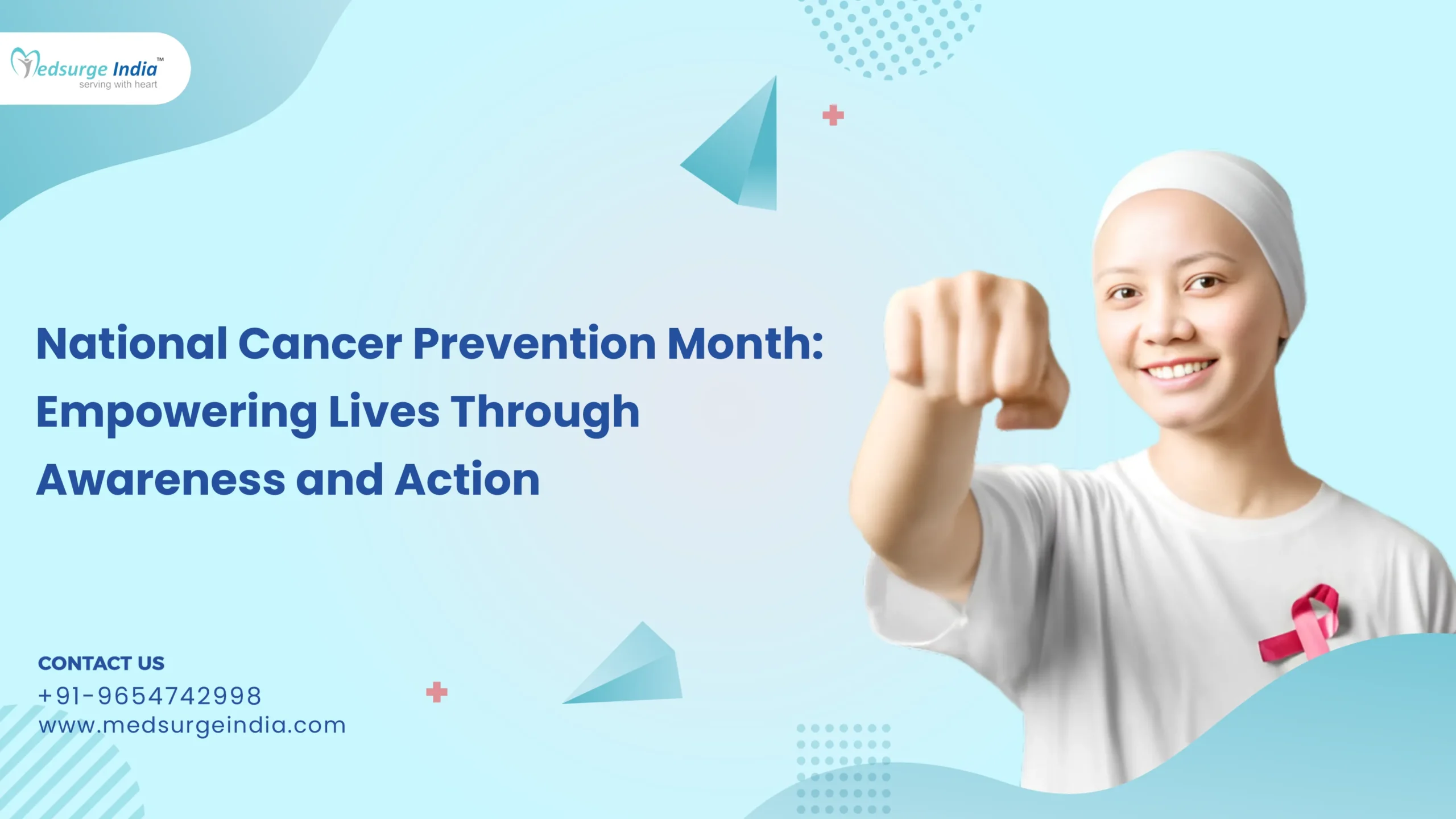
February is recognized as “National Cancer Prevention Month”, a time dedicated to raising awareness about cancer prevention and promoting healthy lifestyle choices that can reduce the risk of cancer. As we step into 2025, the theme for this year’s campaign is “Empower Through Choices: Prevent Cancer, Embrace Wellness”. This theme emphasizes the importance of individual and collective efforts in reducing cancer risks and improving overall well-being.
Why Cancer Prevention Matters?
Cancer encompasses a group of interconnected diseases characterized by the uncontrolled division of certain cells, which can invade nearby tissues. Although it ranks among the leading causes of death worldwide, studies indicate that nearly 40% of all cancer cases are preventable. By adopting healthy habits, making informed choices, and staying vigilant about early detection, we can significantly reduce the burden of cancer on individuals, families, and communities.
Key Focus on Cancer Prevention
Cancer prevention confines both proactive and reactive health practices aimed at minimizing exposure to risk factors that could contribute to the development of cancer. Key strategies include maintaining a healthy lifestyle, undergoing regular health screenings, receiving vaccinations, and steering clear of carcinogenic substances. By integrating these preventive strategies into everyday routines, individuals can take control of their health and enhance their long-term well-being.
Healthy Diet and Nutrition
A balanced diet plays a crucial role in cancer protection. Consuming a variety of fruits, vegetables, whole grains, and proteins strengthens the immune system and reduces inflammation.
- Increase the intake of antioxidant-rich foods such as berries, nuts, and leafy greens.
- Limit processed foods, red meats, and high-sugar items to lower cancer risk.
- Incorporate essential nutrients like vitamin C, fiber, and omega-3 fatty acids into your diet.
- Stay hydrated by drinking water to support detoxification and promote cellular health.
Regular Physical Activity
Engaging in regular physical activity not only enhances overall health but also significantly lowers the risk of cancer.
Strive for at least 2 hours and 30 minutes of moderate-intensity exercise each week. Activities such as brisk walking, yoga, and strength training contribute to maintaining a healthy weight and regulating hormones that may encourage cancer development. Additionally, physical activity helps reduce inflammation, boosts metabolism, and strengthens immune function.
Avoiding Tobacco and Limiting Alcohol Consumption
Tobacco use is the leading cause of cancer, particularly lung, throat, and mouth cancers, while excessive alcohol consumption increases the risk of liver, breast, and colon cancers.
Quitting smoking can substantially decrease cancer risk, often within a few years. It is advisable to limit alcohol intake to moderate levels: one drink per day for women and two for men. Seek assistance through counseling or programs designed for smoking cessation and alcohol dependency treatment.
Early Detection and Screening
Early detection saves lives. Regular screenings can help identify cancer at its earliest stages when treatment is most effective. Key screenings include:
Breast Cancer: Mammograms for women aged 40 and older.
Cervical Cancer: Pap smears and HPV tests for women aged 21-65.
Colorectal Cancer: Colonoscopies for adults aged 45 and older.
Prostate Cancer: PSA tests for men, especially those over 50 or with a family history.
Lung Cancer: Low-dose CT scans for current or former smokers aged 50-80.
Talk to your healthcare provider about which screenings are right for you based on your age, gender, and family history.
Vaccination for Cancer Prevention
Vaccinations are very important in preventing cancer as they help in preventing viruses that cause certain cancers in the human body.
- HPV vaccination: It promotes prevention against anal cancers, cervical, and oropharyngeal.
- Hepatitis B vaccine: Helps lower the likelihood of developing cancer such as liver cancer.
Common Risk Factors of Cancer That You Should Be Aware of
To safeguard our health against cancer, it is essential to identify the risk factors involved. Below are several key risk factors associated with cancer development:
1. Family History: Those with a familial background of breast, ovarian, uterine, or colorectal cancer face a heightened risk of developing these conditions themselves.
2. Smoking and Tobacco Use: The presence of carcinogens, including at least 70 harmful chemicals in tobacco products, can compromise the immune system, making it more challenging to combat cancer.
3. Alcohol Consumption: Consuming alcohol three or more times daily may elevate the risk of developing pancreatic and stomach cancers.
4. Hormonal Changes: Hormonal fluctuations can lead to an increased likelihood of cancers such as breast, endometrial, ovarian, prostate, testicular, thyroid, and osteosarcoma.
5. Chemical Exposure: Contact with environmental chemical carcinogens can raise the risk of cancer.
6. Infections: Certain viral infections, including human papillomavirus (HPV) and hepatitis B or C, can increase the risk of reproductive cancers, head and neck squamous cell cancers, and liver cancer.
7. Radiation Exposure: Prolonged exposure to high-energy radiation can result in DNA damage, thereby increasing cancer risk.
8. Diet: Dietary choices significantly influence the likelihood of developing cancer, either positively or negatively.
9. Obesity: Individuals who are obese or overweight may face a greater risk of cancer.
How You Can Get Involved?
Participate in Community Activities: Engage in workshops, webinars, and health fairs organized in your area.
Tell Your Experience: If you or someone close to you has experienced cancer, consider sharing your story to motivate and uplift others.
Display a Ribbon: Demonstrate your support by wearing a cancer awareness ribbon, such as pink for breast cancer or blue for colon cancer.
Contribute Your Time: Volunteer with organizations such as the American Cancer Society or local cancer support networks.
Helpful: Top 10 Oncologists in India
Takeaway
Cancer can affect anyone, regardless of their background. Reducing risk factors is an effective strategy for lowering the likelihood of developing cancer. It is crucial to inform our loved ones about the different risk factors associated with cancer. Additionally, early detection and consistent screening play a significant role in better cancer management. During this National Cancer Prevention Month, let us commit to raising awareness and motivating individuals to undergo cancer screenings, particularly those with a family history, as prevention is always preferable to regret.



 (1).png)